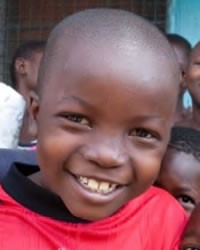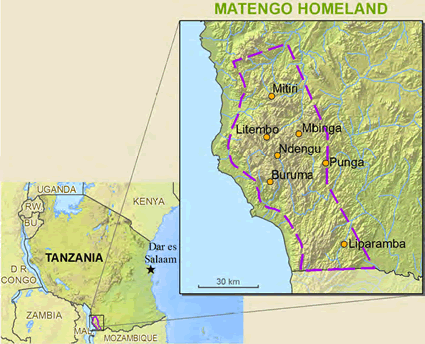A long time ago, David Livingstone and other missionaries from Europe visited the area where the Matendo live. Today, professing Christians number about 80 percent of the people. However, nominalism and ritualism are common. About 10 percent practice the old ethnic religion. Their strong traditions negatively affect them because they're foundational to the people's culture and identity. Even church members rarely experience permanent positive changes due to fear of witchcraft. When something bad happens in the community, such as natural events and illnesses, people generally blame a human source for using sorcery. These long-held beliefs make people resistant to change.
The Matengo live in the Ruvuma Region of Tanzania which is named for the Ruvuma River that is at the southern border of Matengo territory and which also forms the border between Tanznia and Mozambique.
The Matengo struggle with illiteracy, poverty, poor health and shallowness of Bible teaching. But God has the power to alleviate these problems as His Word in the mother tongue, along with Christian tracts, health booklets, and discipleship and literacy materials become available. Development of the language to include these in the Matengo language is underway.
Dialect differences that affect pronunciation exist in each of these three language groups. Thankfully, the variations are minor, and people from all dialects understand each other.
Scripture Prayers for the Munkip in Papua New Guinea.
| Profile Source: Anonymous |











